Why is API Testing Needed?
 Marketing IBTI#Marketing IBTI
Marketing IBTI#Marketing IBTI
Imagine you're planning a cross-country road vacation. You have your car, a map, and plenty of food and beverages for the trip. However, one critical component is missing: a functional engine that will transport you from point A to point B without trouble. That is precisely why API functional testing is so vital.
APIs are the engines that drive our software applications. They enable many systems to communicate with one another and transfer data effortlessly. But, like any other engine, APIs can fail and malfunction if not adequately tested.
This is where API functional testing comes in. It entails testing the behavior and functionality of an API to ensure that it functions as expected, matches the defined requirements, and produces the right result under any scenario.
Understanding API Testing
API functional testing is a sort of software testing that ensures the functionality of Application Programming Interfaces (APIs). It helps to guarantee that the application and API function properly under a certain workload. Here, the developers and QA team must assess what the program is supposed to achieve and guarantee that it fulfills its objective.
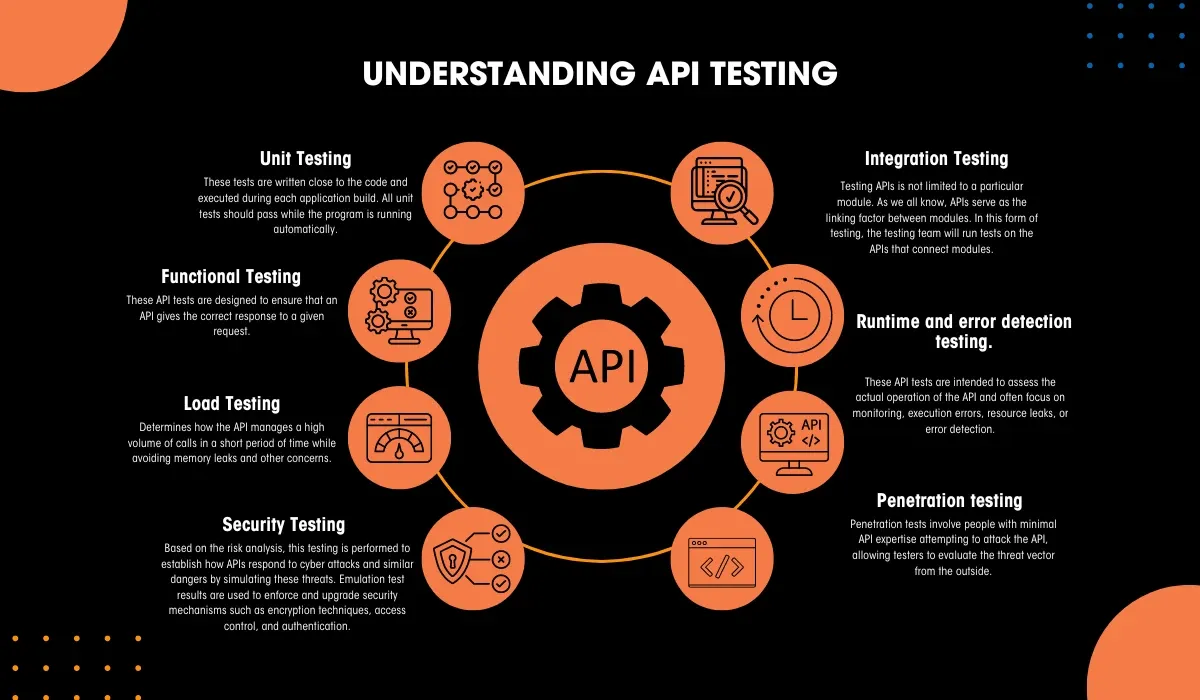
Non-functional API testing involves testers checking an application's non-functional elements such as performance, security, usability, and reliability. Simply put, functional tests look at whether a thing works, whereas non-functional testing looks at how well it works.
Types of API Testing
- Unit Testing: These tests are written close to the code and executed during each application build. All unit tests should pass while the program is running automatically.
- Functional Testing: These API tests are designed to ensure that an API gives the correct response to a given request.
- Load Testing: Determines how the API manages a high volume of calls in a short period while avoiding memory leaks and other concerns.
- Security Testing: Based on the risk analysis, this testing is performed to establish how APIs respond to cyber-attacks and similar dangers by simulating these threats. Emulation test results are used to enforce and upgrade security mechanisms such as encryption techniques, access control, and authentication.
- Integration Testing: Testing APIs is not limited to a particular module. As we all know, APIs serve as the linking factor between modules. In this form of testing, the testing team will run tests on the APIs that connect modules.
- Runtime and error detection testing: These API tests are intended to assess the actual operation of the API and often focus on monitoring, execution errors, resource leaks, or error detection.
- Penetration testing: Penetration tests involve people with minimal API expertise attempting to attack the API, allowing testers to evaluate the threat vector from the outside.
Importance of API testing
API testing is important for verifying that your API functions correctly when confronted with a wide range of expected and unexpected queries. This procedure is intended to assess not only the API's functionality, but also its dependability, performance, and security.
API testing is particularly significant since it has various benefits over other types of testing, such as unit and UI testing.
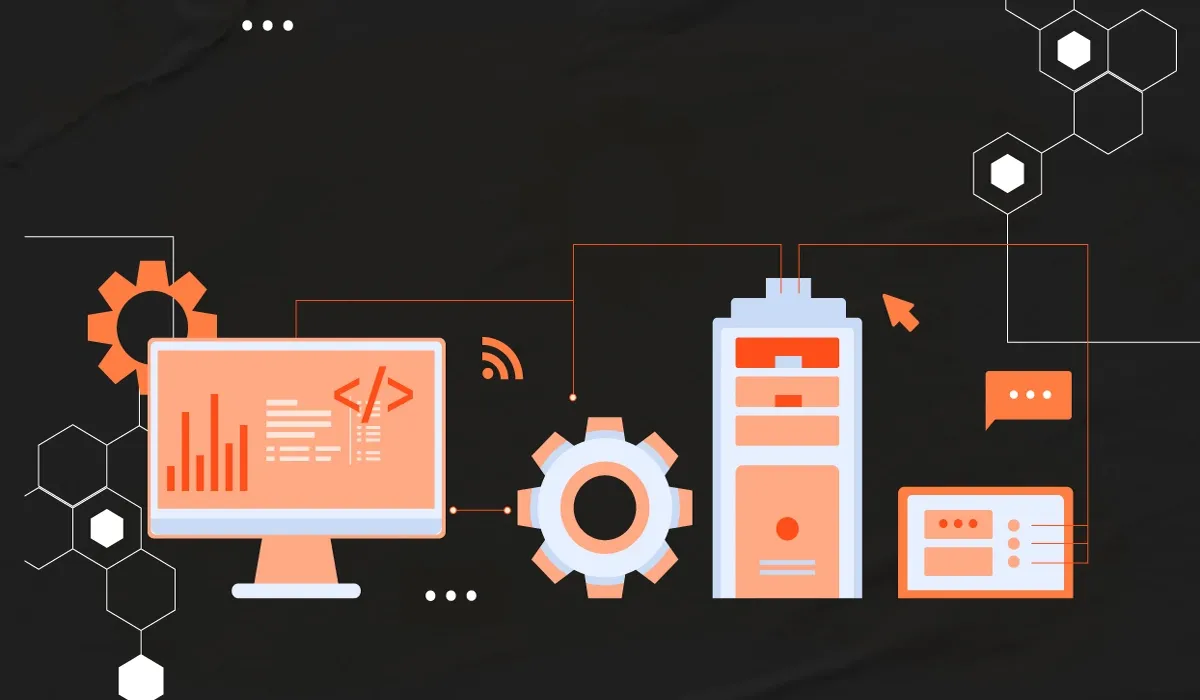
For example, unit tests are used to validate the functionality of specific components within a single application, whereas API tests are used to ensure that all system components perform properly. This increased test coverage makes it easier to find bugs at the unit, database, and server levels.
API tests are also faster to execute and more isolated than UI tests, making it easier to find and fix errors. According to Andersen Lab research, a UI test lasts about seven minutes, but an API test lasts only 12 seconds. This means that an API test is approximately 35 times faster than a UI test.
Perhaps most importantly, API testing enables developer operations, quality assurance, development, and other teams to begin testing an application's basic functionality before the user interface is completed. This allows them to uncover faults or vulnerabilities early in the development process.
Tools for API Testing
- Postman: An API development environment that works on Windows, Linux, Mac, and Chrome. Postman allows us to configure all of the API's anticipated headers and cookies.
- SOAPUI: An open-source tool for doing multiple sorts of API testing, including functional, performance, security, and data-driven testing.
- ReadyAPI: It serves as a framework for functional, security, and load testing of RESTful, SOAP, GraphQL, and other online services. It is recommended for functional and load testing of APIs and web services.
- Insomnia.rest: It is a powerful tool for API testing and development. It offers a user-friendly interface for sending HTTP requests, managing environments, and analyzing responses. Key features include support for various request types and authentication methods, detailed response analysis, and plugin extensions. It’s designed to streamline the API development and debugging process.
There are many other API testing tools used broadly. Some famous tools are REST-Assured, Katalon, ACCELQ, Jmeter, etc.
Example of API Testing
Take Expedia, the world's top online travel service, as an example. When a traveler searches for all available flight alternatives for a specific date range, the program displays all available flights, including price, travel time, and other information.
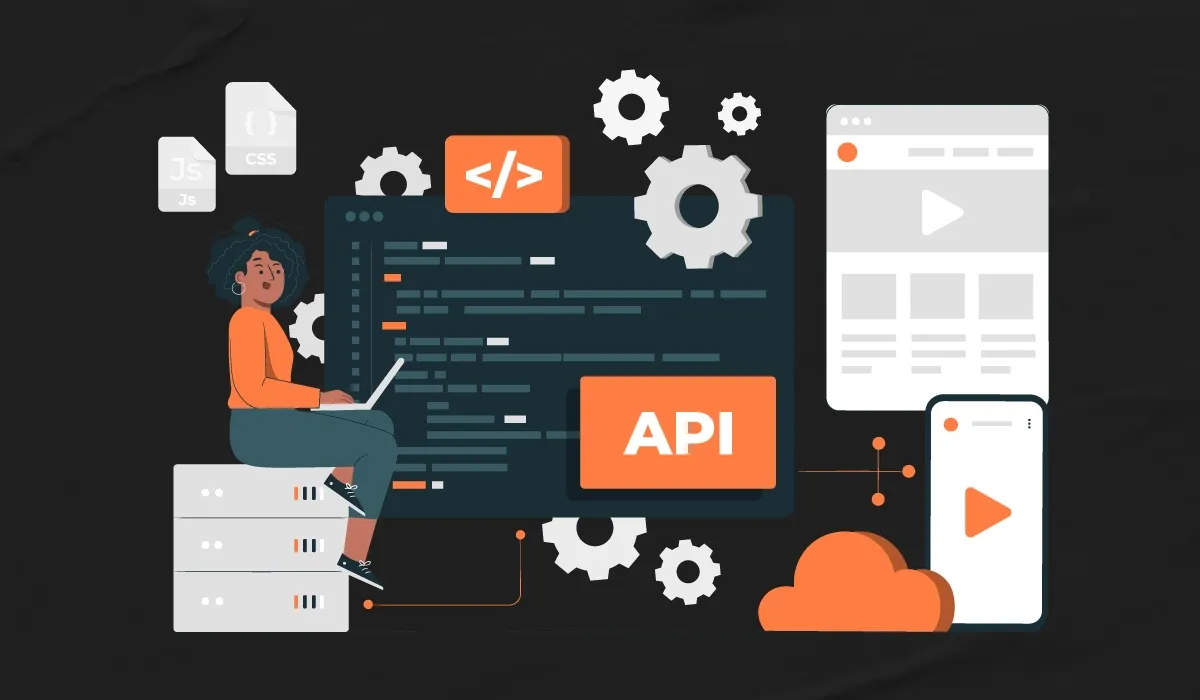
To display all of this information, the Expedia app must contact each airline via APIs. As a result, testers must undertake API functional testing to guarantee that diverse applications communicate and share data properly.
Let us grasp this example:
Test Case – Verify that the API can retrieve flight information based on the given parameters.
- Origin: Mumbai
- Destination: Manchester
- Departure Date: 01-08-2024
- Return Date: 05-08-2024
- Number of Passengers: 3
Expected Output – The Expected output would be checked via the request and Response body as mentioned below:
- Request –
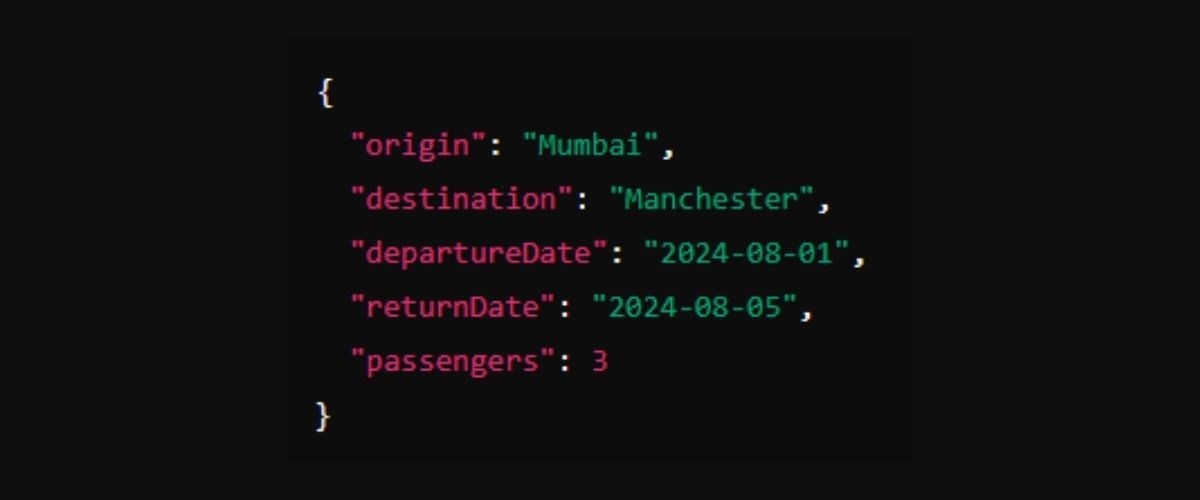
- Response Body –
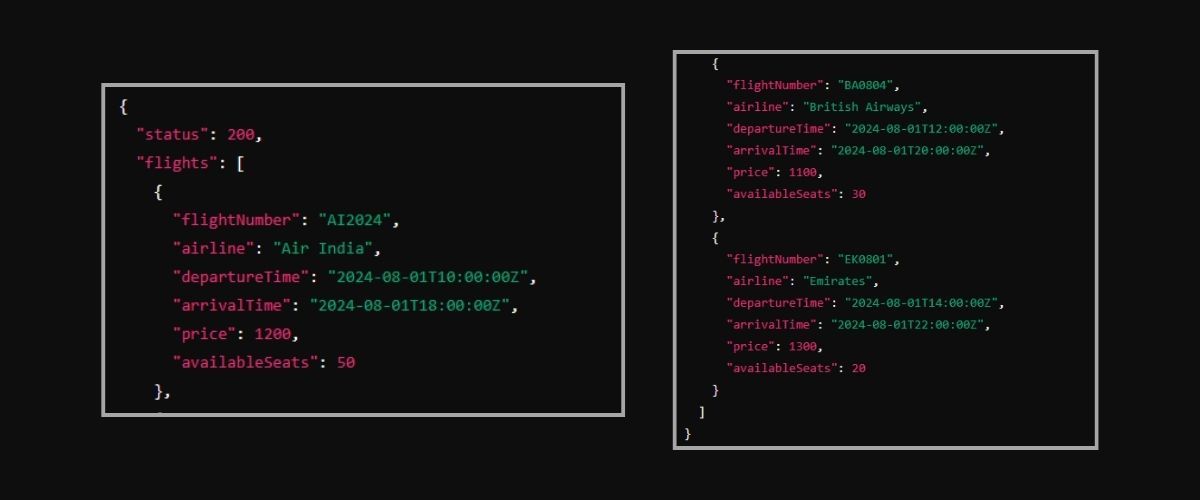
In this example:
- The request specifies the origin (Mumbai), destination (Manchester), departure date (01-08-2024), return date (05-08-2024), and number of passengers (3).
- The response includes a status code (status: 200) indicating success and an array of flights (flights) that match the criteria.
- Each flight object in the array includes details such as flight number, airline name, departure and arrival times, ticket price, and available seats.
API Testing Best Practices
Here are a few best practices for API testing to get more testing done in less time, save money, and provide a high-quality product:
- Document everything: The success of testing depends on how closely they align with business requirements. Because API testing does not have a GUI reference, it is critical to consult the document that specifies all fields and arguments. It is also critical to generate a comprehensive report on the failed test cases.
- Create API test cases for all of the API's conceivable input combinations. Each test case must be independent and self-contained. Group the API test cases by test category. Every test should have API declarations at the top. Every test should include a description of the parameters used.
- API function calls must be prioritized. The sequence of API calls should be carefully planned. One-time call functions like Close Window, Delete, and others should be treated with caution.
Conclusion
After examining the issues raised above, one can conclude that API testing assists us in achieving high-quality business logic without taking up more time than filling out entire forms at the UI level and testing application behavior. Also, automating API testing is a simple task that adds significant value to application quality. So, while testing the application, it is critical to do API testing and incorporate it into the agreed-upon test strategy.
Ready to take your business to the next level? Partner with IBTI IT Solution for top-notch software development services that exceed expectations. Whether you're launching a new product, enhancing an existing application, or seeking expert consultation, our team is here to deliver.

Marketing IBTI
#Marketing IBTI🇧🇷 Português
A IBTI é uma empresa de tecnologia com mais de 12 anos de experiência em desenvolvimento de sistemas, apps e soluções sob demanda. Atuamos no Brasil e no exterior com foco em qualidade, inovação e eficiência.
🇺🇸 English
IBTI is a tech company with over 12 years of experience developing custom software, apps, and IT-as-a-service solutions. We serve clients in Brazil and abroad, with a strong focus on quality, innovation, and efficiency.